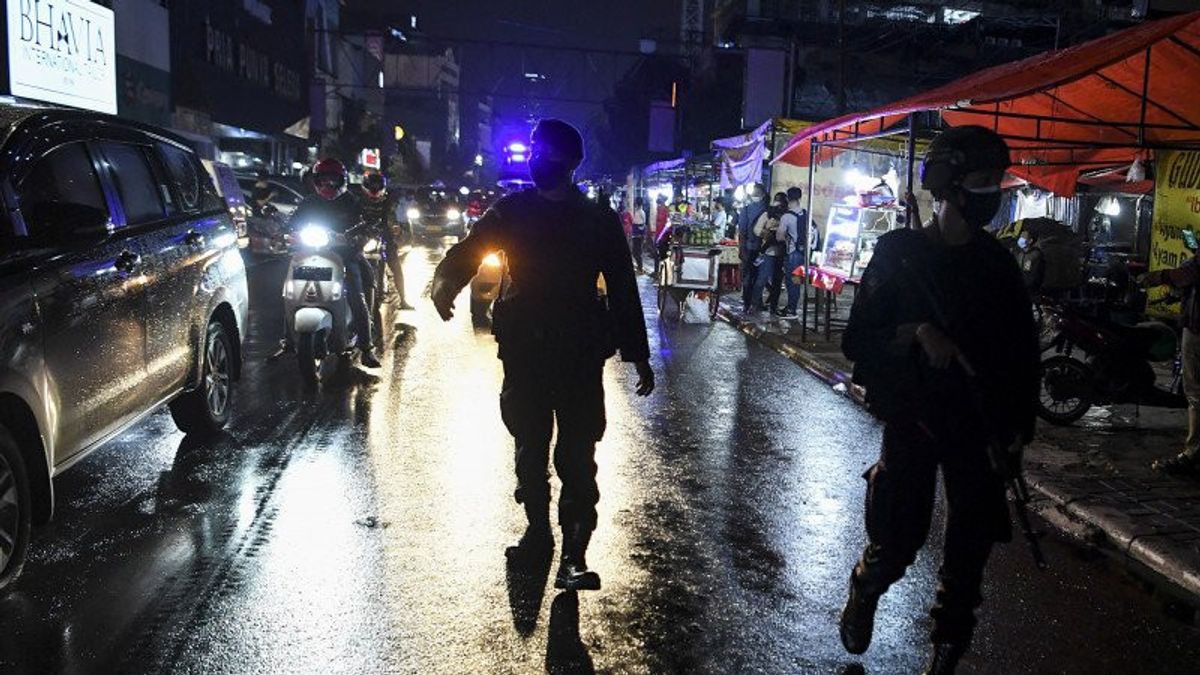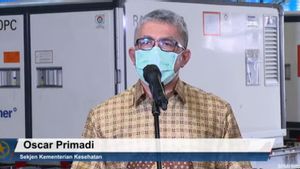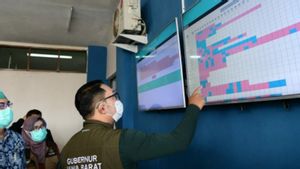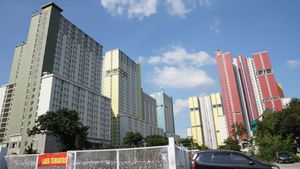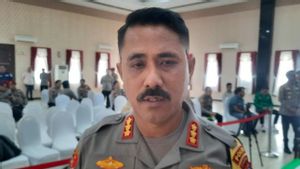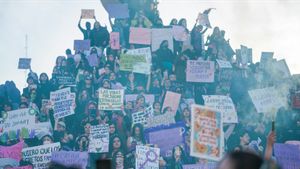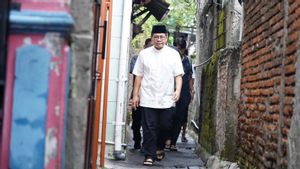JAKARTA - Deputy Chairman of the House of Representatives Commission IX, Charles Honoris, questioned the reason why DKI Jakarta Governor Anies Baswedan did not pull the "emergency brake" to deal with the surge in COVID-19 cases.
Charles Honoris said DKI Jakarta Province had set a daily number of COVID-19 figures. For 2 consecutive days, DKI recorded the highest daily death rate, namely 66 people and daily case number 4,895 cases.
"Looking at these conditions, not only is Jakarta not doing well, in Jakarta's condition, DKI Governor Anies Baswedan's steps to only tighten the enforcement of micro PPKM (Enforcement of Restrictions on Community Activities) rules are clearly not enough", said Charles as quoted by Antara, Sunday, June 20.
According to him, the daily bed occupancy rate (BOR) data for DKI health facilities is above 80 percent, far above the WHO standard of 60 percent. In fact, the BOR of the Wisma Atlet Emergency Hospital has reached 90 percent or the highest during the establishment of the emergency health facility.
"This makes DKI the province with the highest BOR for health facilities nationally, or in other words, it is threatened with collapse", continued the PDIP politician.
The governor of DKI, according to Charles, must implement a total PSBB (Large-Scale Social Restriction), as was implemented in the capital city on March 16, 2020, and September 14, 2020. According to him, the COVID-19 transmission conditions in DKI today are more severe than the conditions before the government implemented the previous two PSBBs.
At the last PSBB in DKI, which was implemented on September 14, 2020, the daily case number was around 1,300 cases and the death rate was more than 20 people, while now it has reached 4,800 more cases and 60 more deaths.
Charles stated that in the current condition of the worst COVID-19 transmission in DKI, the governor has not submitted a request for a total PSBB to the Central Government, according to the applicable regulatory mechanism, then the basis for the DKI Governor's policy on the previous two PSBB is a question for the public.
"If at the beginning of the pandemic, Governor Anies was the first and diligently pulled the emergency brake for his region, what Anies is considering now has not done the same thing", he said.
SEE ALSO:
However, Deputy Governor of DKI Jakarta, Ahmad Riza Patria, emphasized that the DKI Jakarta Provincial Government was waiting for a decision from the central government to take an emergency brake policy or a "lockdown" policy related to the significant increase in COVID-19 cases in Jakarta.
"We will study it later, waiting for the central decision", said Ahmad Riza Patria at Jakarta City Hall, Friday, June 18 evening.
Riza emphasized that the decision to withdraw the emergency brake as it was implemented in Jakarta around February 2021 was not hampered by the central government.
"No, it's not like that", said Riza, without explaining further.
The Head of the DKI Jakarta Health Office, Widyastuti, said the same thing. The emergency brake policy is under the authority of the central government, even though the current COVID-19 condition is similar to February when the daily number of cases was high, even reaching 4,213 cases.
"The policy is at the central level. Because (PPKM Mikro) is from the center", said Widyastuti when met at Monas, Friday.
The English, Chinese, Japanese, Arabic, and French versions are automatically generated by the AI. So there may still be inaccuracies in translating, please always see Indonesian as our main language. (system supported by DigitalSiber.id)
